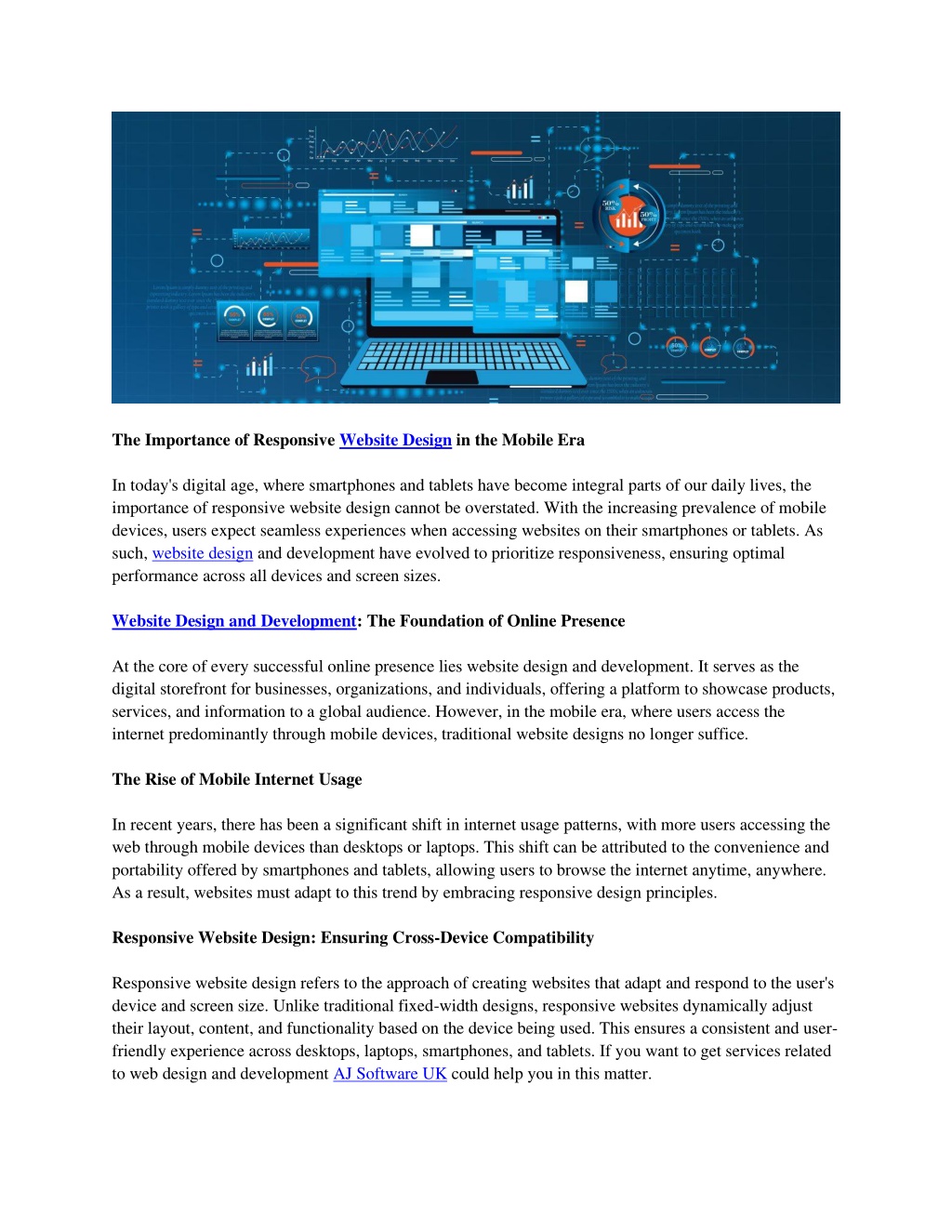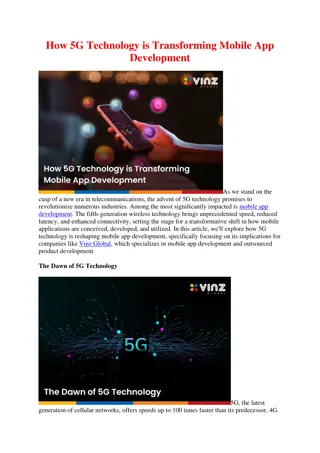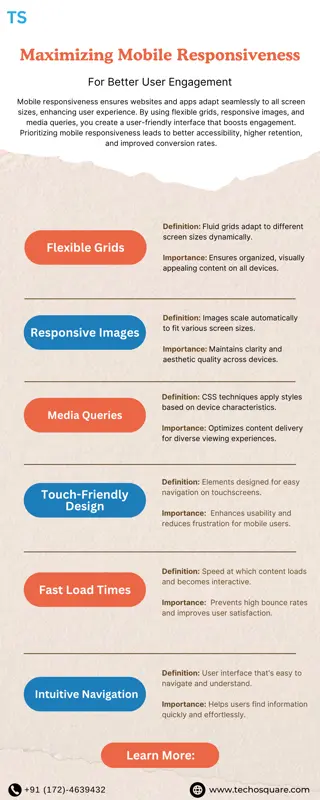
The Importance of Responsive Website Design in the Mobile Era
In today's digital age, where smartphones and tablets have become integral parts of our daily lives, the nimportance of responsive website design cannot be overstated. With the increasing prevalence of mobile ndevices, users expect seamless experiences when accessing websites on their smartphones or tablets. As nsuch, website design and development have evolved to prioritize responsiveness, ensuring optimal nperformance across all devices and screen sizes.
Download Presentation

Please find below an Image/Link to download the presentation.
The content on the website is provided AS IS for your information and personal use only. It may not be sold, licensed, or shared on other websites without obtaining consent from the author. Download presentation by click this link. If you encounter any issues during the download, it is possible that the publisher has removed the file from their server.
E N D
Presentation Transcript
The Importance of Responsive Website Design in the Mobile Era In today's digital age, where smartphones and tablets have become integral parts of our daily lives, the importance of responsive website design cannot be overstated. With the increasing prevalence of mobile devices, users expect seamless experiences when accessing websites on their smartphones or tablets. As such, website design and development have evolved to prioritize responsiveness, ensuring optimal performance across all devices and screen sizes. Website Design and Development: The Foundation of Online Presence At the core of every successful online presence lies website design and development. It serves as the digital storefront for businesses, organizations, and individuals, offering a platform to showcase products, services, and information to a global audience. However, in the mobile era, where users access the internet predominantly through mobile devices, traditional website designs no longer suffice. The Rise of Mobile Internet Usage In recent years, there has been a significant shift in internet usage patterns, with more users accessing the web through mobile devices than desktops or laptops. This shift can be attributed to the convenience and portability offered by smartphones and tablets, allowing users to browse the internet anytime, anywhere. As a result, websites must adapt to this trend by embracing responsive design principles. Responsive Website Design: Ensuring Cross-Device Compatibility Responsive website design refers to the approach of creating websites that adapt and respond to the user's device and screen size. Unlike traditional fixed-width designs, responsive websites dynamically adjust their layout, content, and functionality based on the device being used. This ensures a consistent and user- friendly experience across desktops, laptops, smartphones, and tablets. If you want to get services related to web design and development AJ Software UK could help you in this matter.
The Benefits of Responsive Website Design Enhanced User Experience: Responsive websites provide a seamless browsing experience, allowing users to navigate content effortlessly regardless of the device they're using. By optimizing for touchscreens and smaller screens, responsive designs eliminate the need for zooming and scrolling, enhancing usability and engagement. Improved SEO Performance: Search engines like Google prioritize mobile-friendly websites in their search results, considering responsiveness as a ranking factor. By adopting responsive design practices, websites can improve their visibility and ranking on search engine results pages (SERPs), driving more organic traffic and potential customers. Cost-Efficiency: Rather than maintaining separate desktop and mobile versions of a website, responsive design streamlines the development process and reduces maintenance costs. With a single website that caters to all devices, businesses can allocate resources more efficiently while ensuring consistent branding and messaging. Future-Proofing: As technology continues to evolve, new devices with varying screen sizes and resolutions will emerge. Responsive website design future-proofs your online presence, ensuring compatibility with upcoming devices without the need for extensive redesigns or updates. In Conclusion In the ever-evolving landscape of the internet, where mobile devices reign supreme, responsive website design is no longer a luxury but a necessity. By prioritizing website design and development with responsiveness in mind, businesses can stay ahead of the curve, delivering exceptional user experiences across all devices. In the mobile era, where first impressions matter more than ever, responsive design ensures that your website leaves a lasting impression on every visitor, driving engagement, conversions, and success. Author: (David Hawk) David Hawk is an Expert in Digital Marketing having 7+ years of experience in this industry.






















